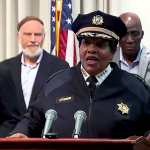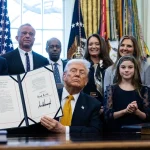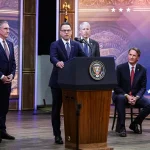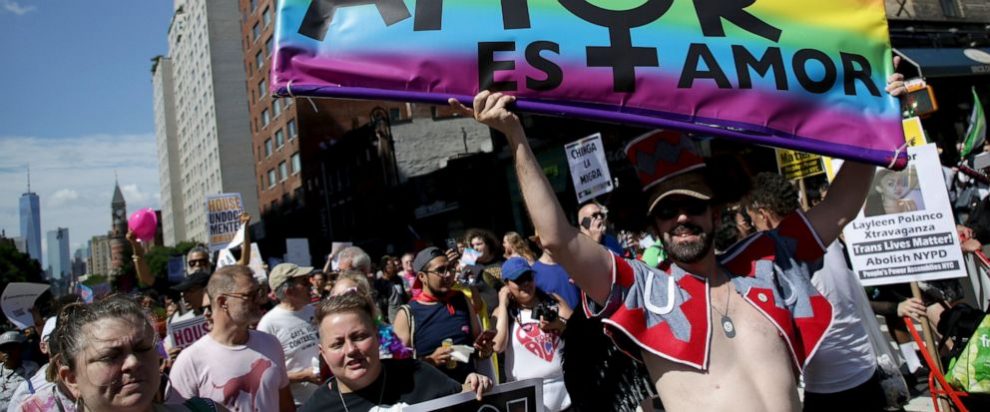Chanting slogans of defiance, thousands of marchers took to the streets of New York on Sunday to protest commercialization of the city’s official Pride parade attended by millions of people a few blocks away.
The alternative Queer Liberation March in downtown Manhattan was designed to be a return to “a people’s political march” without corporate sponsorship and police barricades, organizers said.
The annual Pride march in New York has lost its radical roots and become commercialized with parade floats paid for by banks and beverage companies, said those at the alternative march dubbed Protest Pride.
Mobile communications company T-Mobile, Mastercard Inc and banking company HSBC were among the NYC Pride corporate sponsors.
“It’s a march, not a parade, to commemorate the Stonewall riots,” Maddy Felecite told the Thomson Reuters Foundation at the start of the alternative march.
“I prefer to walk in a pride march rather than a parade, as it’s more linked to the grassroots movement.”
Pride marches around the world have their roots in the events of June 1969, when patrons of Stonewall, a New York gay bar, stood up to police harassment and triggered days of rioting.
Their resistance gave rise to national and global LGBT+ movements for equal rights.
“Stonewall was a riot. It wasn’t a pride parade,” said Alma Rosa Silva-Banuelos at Protest Pride.
“Today is a resistance and also a reminder of where the queer and trans community came from.”
Holding a sign that said “Revolting Lesbians,” marcher Jo McNamara said: “We’re here today because we are tired of the police and corporations taking over Pride.”
Organizers of the official New York WorldPride 2019 parade estimated more than four million people would attend, with more than 50 events held over the June Pride month.
They did not immediately respond to a request for comment on Protest Pride.
Around the world, more than 60 countries hold annual pride marches although in some nations gay events were quashed.
The first pride march in the former Soviet republic of Georgia was called off last week after threats from extreme right-wing groups, opposition from the influential Orthodox Church and political unrest that left hundreds of people injured.
Protesters disrupted San Francisco Pride on Sunday, issuing a statement calling for no police or corporate presence at the march. (Reporting by Hugo Greenhalgh @hugo_greenhalgh; Editing by Ellen Wulfhorst. Please credit the Thomson Reuters Foundation, the charitable arm of Thomson Reuters that covers humanitarian news, women’s and LGBT+ rights, human trafficking, property rights, and climate change.
Story cited here.
























